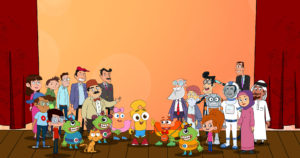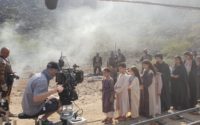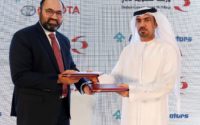Fun Animated Characters To Promote Arabic Language Use On Madrasa E-Learning Platform
Through animated characters and engaging digital content, Madrasa e-learning platform aims to promote and encourage Arabic language use among young students.
Since December 2019, Madrasa.org added Arabic language video lessons to its library of over 5,000 Arabized educational videos in math and science to students from kindergarten to grade 12.
In collaboration with children books’ publishing houses, the team behind Madrasa is currently working to produce engaging animated stories of Arabic language lessons targeting kindergarten and primary school students.
Animated characters are specifically designed to fit Madrasa’s Arabic language lessons that aim to spark the young children’s imagination and instill passion for the language.
With 250 Arabic language videos currently live on the platform to address the language basics to students from grades 1-4, the number of lessons is expected to reach 1,000 by the end of 2020.
Dr. Walid Al Ali, project manager of Madrasa at the Mohammed bin Rashid Al Maktoum Global Initiatives (MBRGI), said the platform focuses on producing interactive and engaging Arabic language content, especially for kindergarten and primary school students, using animated characters that help deliver the information efficiently.
“The use of advanced technologies to produce high-quality educational videos and innovating animated characters relatable to different ages have been fundamental to the online Arabic lessons available on Madrasa,” said Al Ali.
He added, “Through developing creative Arabic language content on Madrasa, we aim to contribute to strengthening and preserving the status of the Arabic language through developing new learning tools to reach the youth.”
A team of Arab talents have designed Madrasa animated characters to deliver the content, developed by specialized teams of Emirati and Arab academics, authors and experts.
The animated characters are developed to efficiently and innovatively deliver information to students across 13 different stories.
Among them are animated stories that depict the Arabic alphabets as friends living in the same happy neighborhood and interacting in a series of comic events.
Animations of planets, which target students in grades 1-7, depict the arrival of space creatures to earth and growing passion for the Arabic language. Each video follows a certain space creature that demonstrates the aesthetics and rules of the Arabic language through their interaction with human population on earth.
Students can also explore the world of Sultan the Astronaut through which his conversations from space and call to earth spark their imagination of space and illustrates the beauty of the Arabic language, with the help of his astronaut friend Salem.
Another remarkable character is Al Farahidi, an animated depiction of the leading lexicographer and grammarian Al Khalil ibn Ahmad Al Farahidi who was once titled the Genius of the Arabic Language. Addressing grades 7-12, Al Farahidi animated character teaches poems in a comic and conversational manner, while the character Ahmed Zaki Pasha introduces Arabic punctuation.
Through Madrasa’s Arabic language videos, students also get introduced to a wise man who provides quick solutions to linguistic questions for students in grades 4-9.
Arabic educational content on Madrasa was originally produced in coordination with a committee of specialized academic experts, teachers and professors from Zayed University and the Ministry of Education to cater to students from kindergarten to grade 12 based on approved curricula in the Arab world. The content was then transformed into engaging and innovative story-telling videos in collaboration with specialized video editors, producers and voiceover artists.
Madrasa e-learning platform will complete the Arabic language video lessons in three phases, producing 800 educational videos and 200 statically animated stories that bring the total up to 1,000 videos mapped with learning outcomes by the end of this year.
The first phase launched on December 18, 2019, coinciding with the UN Arabic Language Day, with 250 basic Arabic language videos for kindergarten and primary school students with engaging alphabet songs.
Work is currently underway for the second and third phase that will include produce Arabic language video lessons for advanced school grades, besides animated stories. The outcome will see comprehensive online Arabic curricula that covers Arabic grammar, reading, speaking, writing, poetry and literature.






